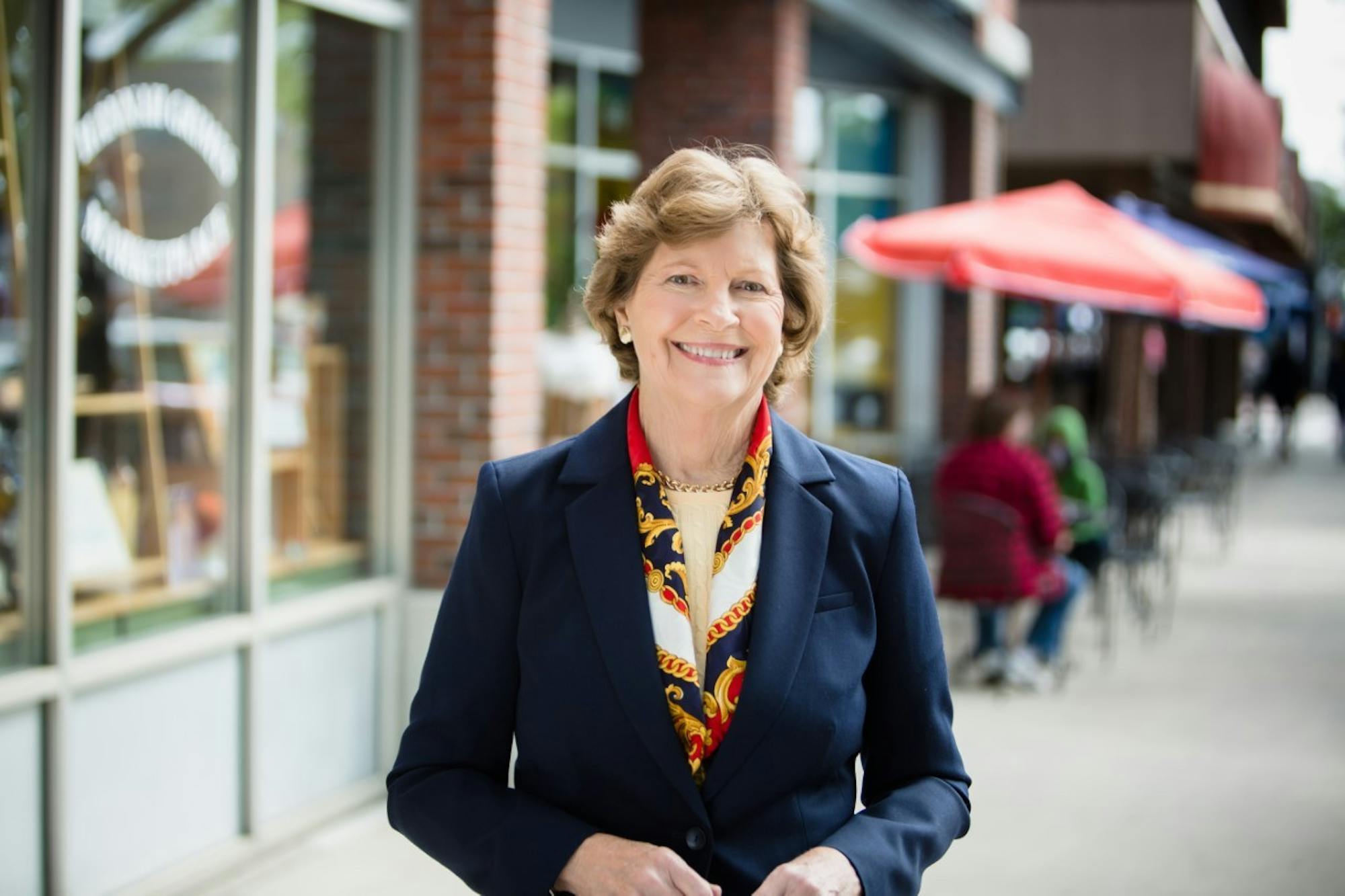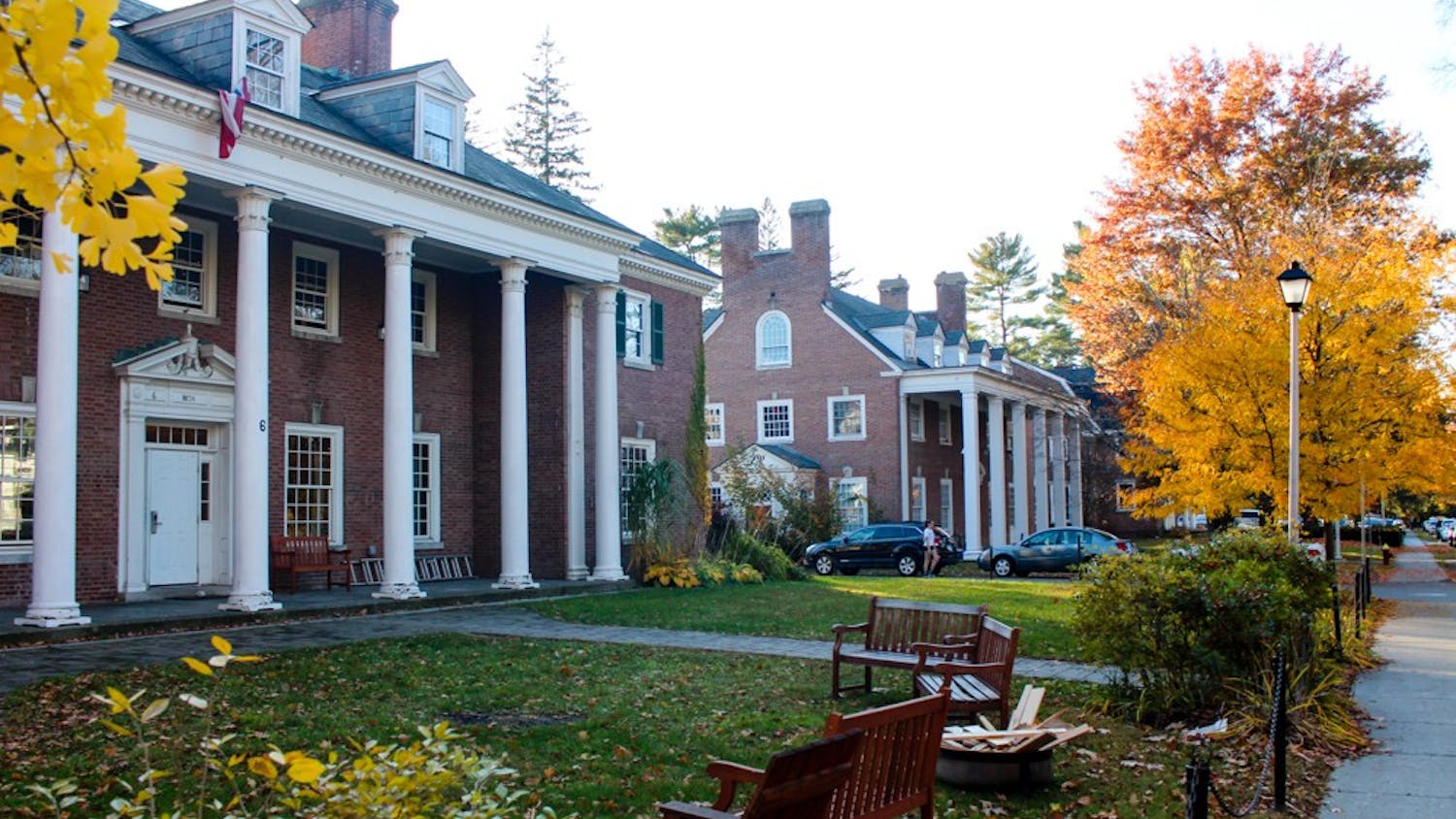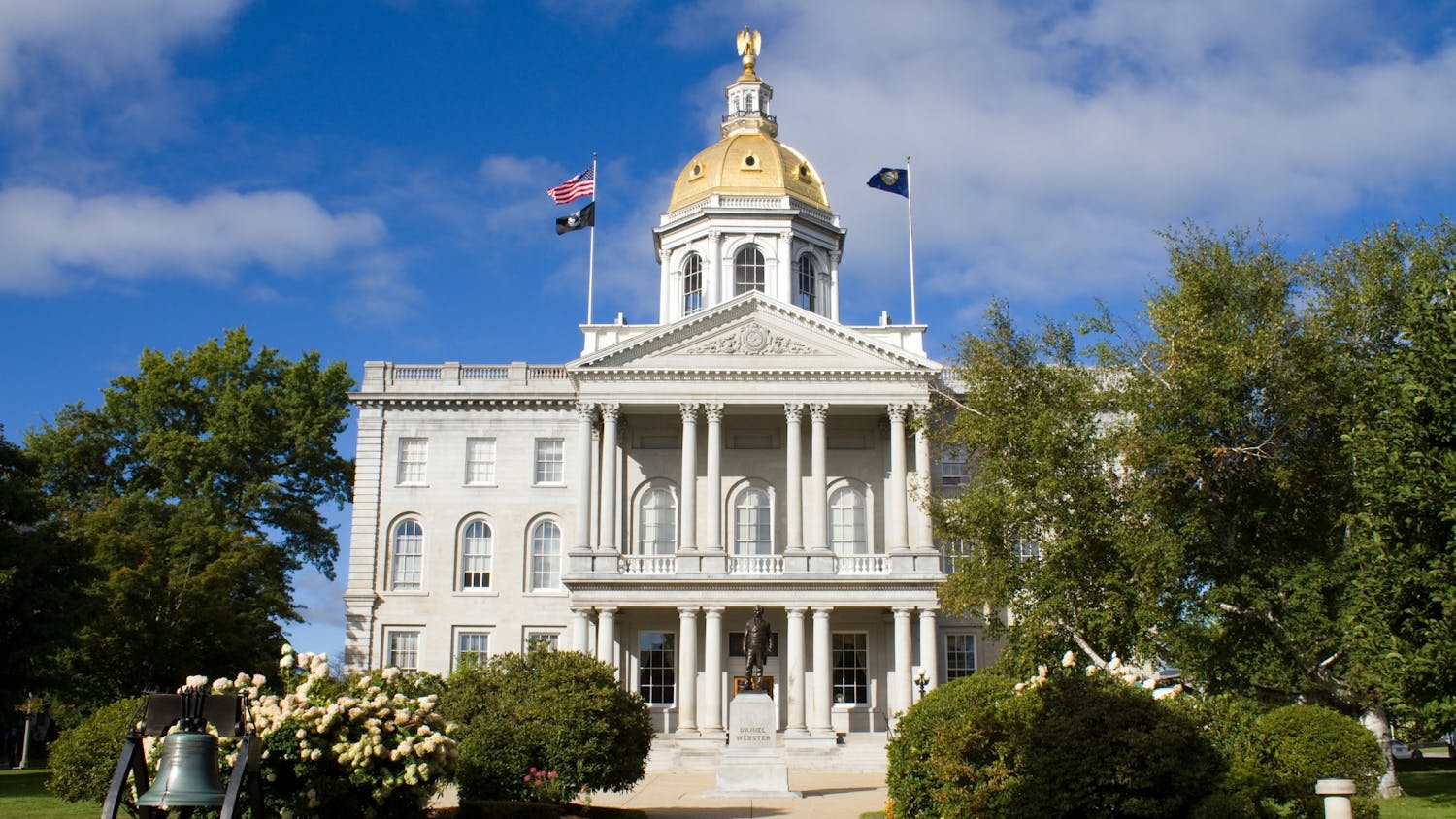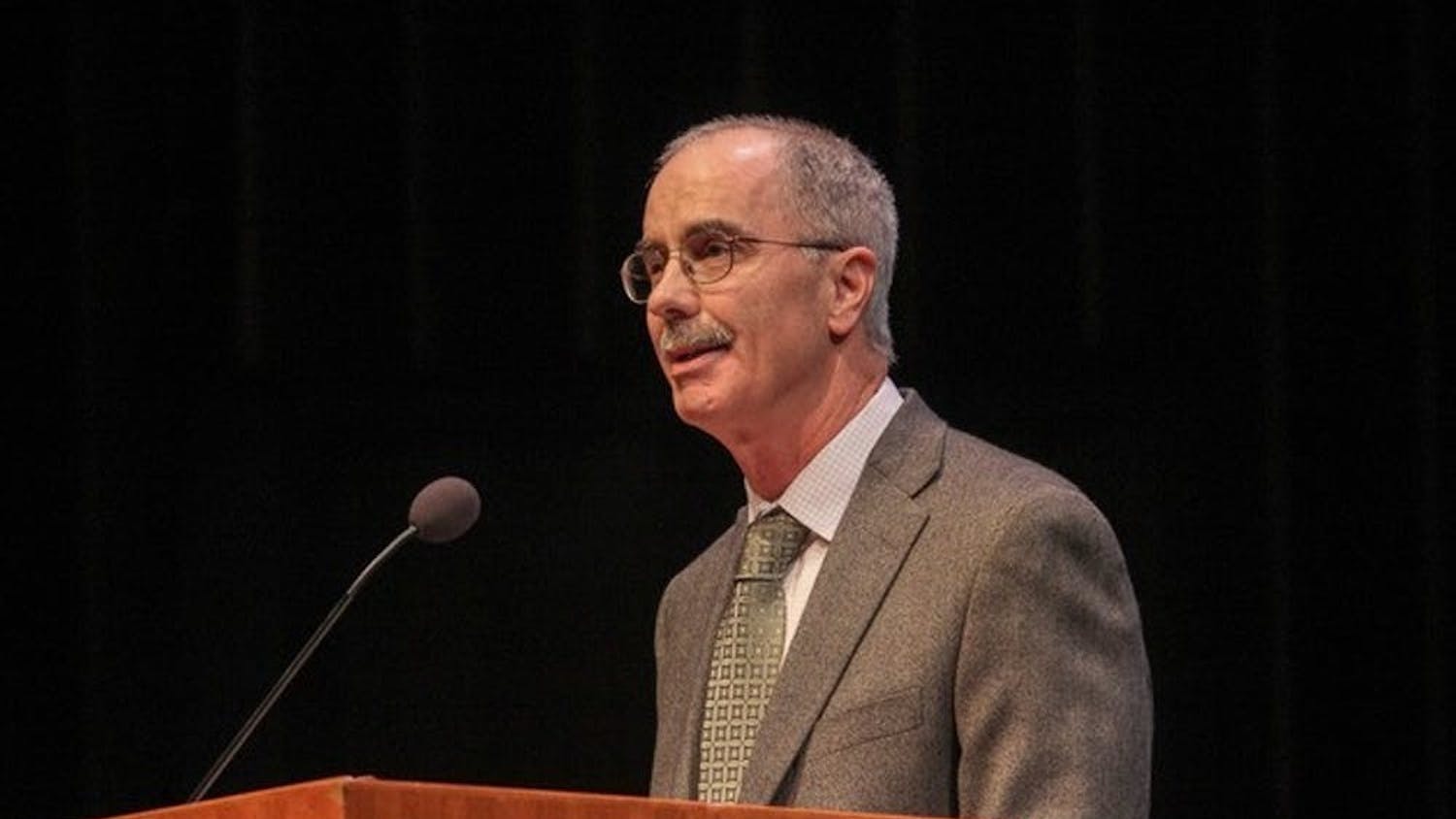Sen. Jeanne Shaheen, D-N.H., is the first woman in American history to have served both as governor and as a U.S. senator. In the Senate, she sits on the Appropriations, Armed Services and Foreign Relations committees, among others. Shaheen has also held legislative office at the state level, serving two terms in New Hampshire’s state Senate in the 1990s. Outside of elected office, Shaheen has served as a teacher at Dover and Water Valley High Schools, owned a small retail business and directed the Harvard Kennedy School’s Institute of Politics.
Shaheen is currently running for reelection against Republican candidate Bryant “Corky” Messner, a corporate attorney and military veteran. Her campaign has emphasized health care, the economy and national security. The Dartmouth sat down with Shaheen to get her take on the issues and on the stakes of the Nov. 3 election.
In the current political climate, it seems like there are very few things that both sides can agree on. What do you think can be done to overcome this partisan gridlock in the Senate and in our government in general?
JS: Well, one of the things we were very successful at coming together on earlier in the year was a package of assistance for people affected by the coronavirus. All of the early legislation to respond to that was passed overwhelmingly in both the House and Senate by both parties. The March CARES Act — which gave $1.25 billion to the state of New Hampshire, extending unemployment benefits, helping the hospitals and more — was passed 96-0 in the Senate.
So there are things that we can come together around. We just passed the permanent funding of the Land and Water Conservation Fund, which provides funding for communities in New Hampshire and across the country to help preserve lands, to keep water clean and preserve our natural resources. With that, we also passed what's called the Great American Outdoors Act, which was, again, overwhelmingly bipartisan.
I think we need leadership at the top, whether it is in the White House or in the Senate, that understands that addressing partisanship is something that everybody has to work at. And civil discourse is very important to that. So whenever the president insults people — whenever one side or the other refuses to negotiate as we're seeing right now with Senate Majority Leader Mitch McConnell, R-Ky., refusing to negotiate on another package of assistance, and when there is a deliberate stoking of animosities and differences as we've seen too often from this president — that all contributes to the partisanship. I hope we're going to see a new president who will stop engaging in that kind of divisive rhetoric and in divisive actions, and who will try and work to unite the country.
The election of our next president and of the next Congress is at the forefront of everyone’s minds, but what would you say about the significance of down-ballot races, as well as the state ballot questions in New Hampshire?
JS: They're very important. I hope that everyone will look not just at the top of the ticket, but at the congressional and legislative races as well.
One of the things that makes this year particularly important is that we expect that because this has been a census year, the state will be doing redistricting sometime in the next two years. And so the legislature will decide how those districts are drawn not just for Congress, but for the states and for the State House. So that is all going to be very important as people think about the election and what it means for them. Services are determined by census numbers and by the amount of money that comes into a state. All of that determines how much money there is for Medicaid, how much money comes into New Hampshire for social services, for economic work — for a whole lot of services that are important to people in the state.
In 2018, you gave a talk at Dartmouth about cyber threats to our democracy, where you said that foreign interference through online influence and misinformation campaigns are among the greatest threats facing the United States. What is your assessment of how our country has responded to this threat in the leadup to the 2020 elections?
JS: As a member of the Foreign Relations and the Armed Services committees, I’ve had the chance to hear about, and to see very directly, what the Russians, and in this election the Chinese and the Iranians, are trying to do to disrupt our elections. I think people think about foreign influence in terms of trying to manipulate the vote count, or in terms of hacking into voter registration websites or election websites in states around the country — and there has been some of that.
But what's really been insidious has been the disinformation campaign. As I said back when I was at Dartmouth in 2018, that's not anything new. We know that Russia, since the Soviet days, has tried to influence what's happening in the United States, particularly around our elections and our democracy. But what makes this so challenging is social media: the fact that they can reach so many people on social media and that often when people look at something through social media, they don't pay as close attention as they might otherwise, to where it comes from and whether it's factual or not.
I think we've made some real progress since the 2016 election and since I spoke at Dartmouth in 2018. We saw that before the 2018 elections, when we knew that Russia was interfering, we were pretty successful — through the Department of Homeland Security and through the Department of Defense — in shutting down many of those Russian bots and in taking down a lot of what they were doing to interfere. But we haven't expanded much beyond that in terms of educating the public and helping people figure out how to recognize that kind of disinformation. And that, I think, is a continuing challenge. And it's being exacerbated before this election by other conspiracy theories like QAnon.
At the end of August, you visited Dartmouth-Hitchcock Medical Center. While there, you were briefed by the medical center’s leadership team and medical experts and toured the center’s Connected Care program. As New Hampshire continues to battle COVID-19, what were your takeaways from the time you spent at DHMC?
JS: We're very fortunate in New Hampshire to have Dartmouth-Hitchcock Medical Center. They are a major hospital system throughout the country known for their innovation and for their ability to treat new diseases. They were one of the first to work on testing of the coronavirus in New Hampshire after our first cases showed up in the Upper Valley. So they had an opportunity early on, and they came to the table and have worked since then — not just on the testing piece but on new treatments — and have really provided a model for the rest of the country.
What I was really impressed with was the remote telehealth monitoring of emergency rooms of the eight hospitals that are part of that Connected Care effort, and the ability to provide the kind of expertise that Dartmouth has to some of those other hospitals so that they have that kind of expertise. It’s been really impressive, and it's been one of the few successes that has emerged from this awful tragedy because more and more health systems and more and more physicians are recognizing how important telehealth is, particularly to rural voters and to people who are older or disabled and can't get to a doctor's office.
Climate change is a global problem, but in New Hampshire its effects can be felt locally, with sea level rise along the New Hampshire coastline accelerating and temperatures across the state rising significantly in recent years. What would you say when it comes to the urgency of fighting climate change in the context of these local impacts on New Hampshire?
JS: It's an existential threat to New Hampshire, to the country and to the world. And we need to do everything possible as soon as possible. We need to get back into the Paris climate accords so that we're working with the international community. We're seeing the effects not just along our coasts, as you point out — our moose population is down 40%, the number of days that we have snow cover is down — everything is warming. And it's having a huge impact on a tourism state like we are, and that has an impact on our economy as well.
So we've got to look at how we move to clean alternative fuels. New Hampshire is looking at offshore wind as one of the ways to do that. Certainly, biomass and biofuels are a very important aspect of that, and they're also very important to our timber industry. I've been a big proponent of energy efficiency because it's the fastest, cheapest way to deal with our energy needs and to reduce our dependence on fossil fuel. And if you look back over the last 40 years, we have saved more energy through efficiency in the United States than we have produced through fossil fuel and nuclear power combined. So it is a huge low hanging fruit. I have legislation with Sen. Rob Portman ’78, a Republican from Ohio, to try and put in place policies that will expand what we provide as incentives to encourage efficiency.
This interview has been edited and condensed for clarity and length.





